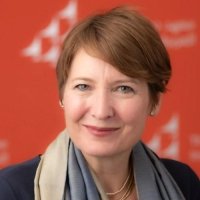Change and Consequences: Is Saudi Arabia at the Dawn of a New Era?
Four experts discussed the current challenges Saudi Arabia is facing and the short- and long-term steps the kingdom’s leadership has taken to address these issues.
On May 1, 2017 the Middle East Program at the Wilson Center hosted an event “Change and Consequences: Is Saudi Arabia at the Dawn of a New Era?” with Abdulaziz Sager, Chairman and founder, Gulf Research Center; Kristin Smith Diwan, Senior Resident Scholar, Arab Gulf States Institute; David Ottaway, Middle East Fellow, Wilson Center; and Fatimah Baeshen, Socioeconomic Strategist, Arabia Foundation. Henri J. Barkey, Director, Middle East Program, Wilson Center, moderated the discussion.
Sager started the discussion by posing a question of how Saudi Arabia perceives President Donald Trump’s foreign policy goals in the Gulf region. Sager listed four keys issues Trump has focused on in the Gulf region: revisiting the nuclear agreement with Iran, the threat of missiles, Iran’s involvement in creating militias and supporting terrorist organizations, and Iran’s interventionist policy using sectarianism. Sager stated that these four policy issues are aligned with Saudi concerns, but said that he is concerned with how the United States will implement such policies on the ground. Overall, Sager sees a positive outcome for Gulf foreign policy, following Trump’s visit to the Gulf region in May.
Diwan focused on Saudi Arabia’s internal policies. She acknowledged how Saudi Arabia’s Vision 2030 plan could be used to diversify Saudi Arabia’s economy beyond oil production and exports and increase employment in the private sector. Diwan added that compared to other Gulf Arab states, Saudi Arabia has a larger population but smaller GDP per capita, which presents a challenge with implementing new changes to the economy. With regard to Vision 2030, Diwan sees it as a process to jumpstart the Saudi economy. Through this process, the country aims to monetize its oil resources in order to invest and diversify the economy; to broaden the scope of the economy through social change, including efforts to push for women’s employment and to emphasize a new creative economy that caters to younger generations; and to allow people more space to create their own livelihoods and develop new industries.
Ottaway addressed the skepticism around Vision 2030 and the likely problems the economic plan would pose. First, he first talked about Saudi Arabia’s difficulties in materializing the King Abdullah Economic City and the King Abdullah Financial District, projects that have cost the Saudi government a significant amount of money. Ottaway mentioned that one of the key goals of Vision 2030 is to increase the private sector’s share of the economy from 40 to 60 percent. Ottaway noted that although it is easy for Saudi Arabia to aspire for economic success, such aspirations can be overclouded if there is insufficient funding for such large projects. Overall, Ottaway said that Saudis are anxious and skeptical about what Vison 2030 will bring, but they are still hopeful.
Baeshen started by framing her comments on the macro and micro levels. On the macro level, she said that Vison 2030 is a “strategic point on the horizon” for the private and public sectors because it is about improving people’s quality of life, ensuring national unity, and sustaining long-term security. Additionally, Baeshen believes it is still too early to have discussions about its effects on the economy because Vision 2030 was only implemented in April of last year. On the micro level, Baeshen stressed governance and its role in restructuring the public sector and mobilizing people to join the private sector. Second, she mentioned the potential of leveraging certain industries to build a long-term business environment that facilitates growth. Baeshen expressed her hope for an anchor industry that would drive economic and innovative growth in Saudi Arabia in the next three to five years.
By Oumama Kabli, Middle East Program
Moderator

Senior Fellow, Council on Foreign Relations
Panelists


Former Washington Post Middle East Correspondent
Hosted By

Middle East Program
The Wilson Center’s Middle East Program serves as a crucial resource for the policymaking community and beyond, providing analyses and research that helps inform US foreign policymaking, stimulates public debate, and expands knowledge about issues in the wider Middle East and North Africa (MENA) region. Read more
